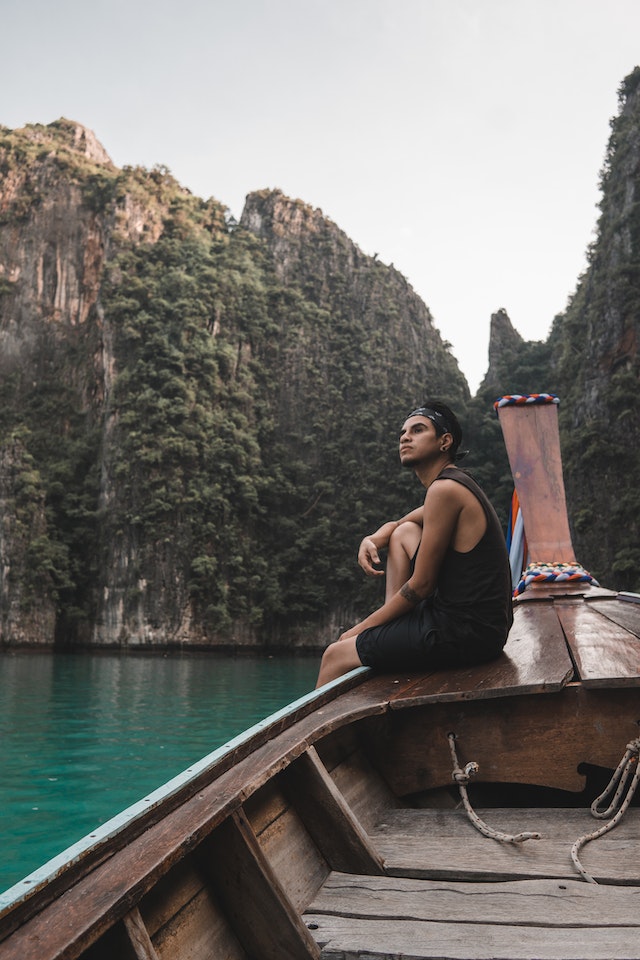
Traveling offers incredible opportunities for exploration and adventure, but it’s crucial to prioritize your safety and well-being while on the road. Whether you’re embarking on a short getaway or a long-term journey, taking precautions to prevent injury is essential. Here, we want to discuss valuable tips to help you stay safe and enjoy a worry-free trip.
Pack Smart To Protect Your Body
Before setting off on your adventure, pack your bags thoughtfully. Avoid overpacking to prevent strain on your body while carrying heavy luggage around the airport, on the street, or loading it into cars. Choose a suitcase or backpack with proper support and even take advantage of packing cubes to organize your belongings and distribute weight evenly throughout your bag. In addition, place heavier items at the bottom and close to your body to maintain balance and stability when picking up or walking with your luggage.
Stay Active and Stretch
Long flights or road trips often involve extended periods of sitting, which can lead to stiffness and muscle tension. To prevent injury, make an effort to stay active during your journey. Take short breaks to stretch your legs, walk around the cabin or make pit stops during road trips. Stretching exercises can help reduce muscle soreness and improve circulation. Furthermore, it might be a good idea to plan your more strenuous activities after your body has acclimated from the travel. To help with getting ready for any significant exercises you might be planning on your trip, consider getting a sports massage in Chicago, IL or wherever it is you’ve travelled to, as these are specifically designed for preparing the body for such activities.
Maintain Good Posture
Whether you’re sitting on a plane, train, or in a car, maintaining good posture is crucial to prevent discomfort and injury. Sit upright with your feet flat on the floor, and use a supportive cushion or lumbar roll to maintain the natural curve of your spine. In addition, the spinal cord injury attorneys at Shaw Cowart LLP recommend avoiding slouching or crossing your legs for extended periods as it can strain your back and neck. The last thing anyone wants is a hurt back because they chose comfort over posture.
Adapt to Local Road Safety
If you plan to rent a vehicle or use public transportation at your destination, familiarize yourself with local road safety rules. Research the driving customs, traffic regulations, and road conditions to ensure you’re prepared before ever getting on the road. As described by the injury lawyers at Gary C. Johnson, no matter where you are, wear seat belts and, if driving, follow speed limits and be vigilant for pedestrians and cyclists. Of course, you can be vigilant but still get involved in an accident. If you are involved in a road accident, you should be aware that victims need to hire a reliable lawyer in order to claim compensation, as local laws in the area you’re traveling may have different laws to those at home.
Use Proper Footwear
Exploring new destinations often involves a significant amount of walking. To prevent foot and ankle injuries, wear comfortable and supportive footwear. Invest in a pair of well-fitted walking or hiking shoes that provide adequate arch support and cushioning. Avoid wearing flip-flops or high heels for extended periods, as they can lead to slips, falls, or foot pain.
Be Safe In The Water
Water activities can be thrilling and refreshing, but it’s essential to prioritize safety. If you’re engaging in water sports or swimming in unfamiliar areas, follow local guidelines and seek advice from experienced individuals. Be aware of potential hazards like strong currents, sharp rocks, or marine life. Use proper safety equipment, such as life jackets or helmets, when necessary.
Stay Hydrated and Mindful of Food Safety
Maintaining proper hydration is essential, especially in unfamiliar climates. Carry a reusable water bottle and drink sufficient amounts of water throughout the day. Additionally, be mindful of food safety practices to avoid foodborne illnesses. Opt for clean and reputable establishments, consume thoroughly cooked meals, and wash your hands frequently. In case of extreme dehydration or illness, consider seeking medical assistance, some travelers find relief through the use of mobile IV services, which can provide rapid hydration and necessary nutrients to help you recover and continue enjoying your journey with optimal health. Be sure to research the availability of such services in your destination or consult with a local healthcare professional for recommendations
Protect Yourself from the Sun
Whether you’re exploring tropical beaches or hiking in mountainous regions, protecting your skin from the sun’s harmful rays is vital. Apply sunscreen with a high SPF, wear a wide-brimmed hat, and use sunglasses to shield your eyes from UV radiation. Seek shade during the peak hours of sunlight and reapply sunscreen regularly, especially after swimming or excessive sweating.
Preventing injury while traveling is a crucial aspect of ensuring a safe and enjoyable trip. By following these essential tips, you can minimize the risks associated with travel and focus on making lifelong memories. Of course, you can still have fun while being safe, but not nearly as much if you’re hurt or in pain!



